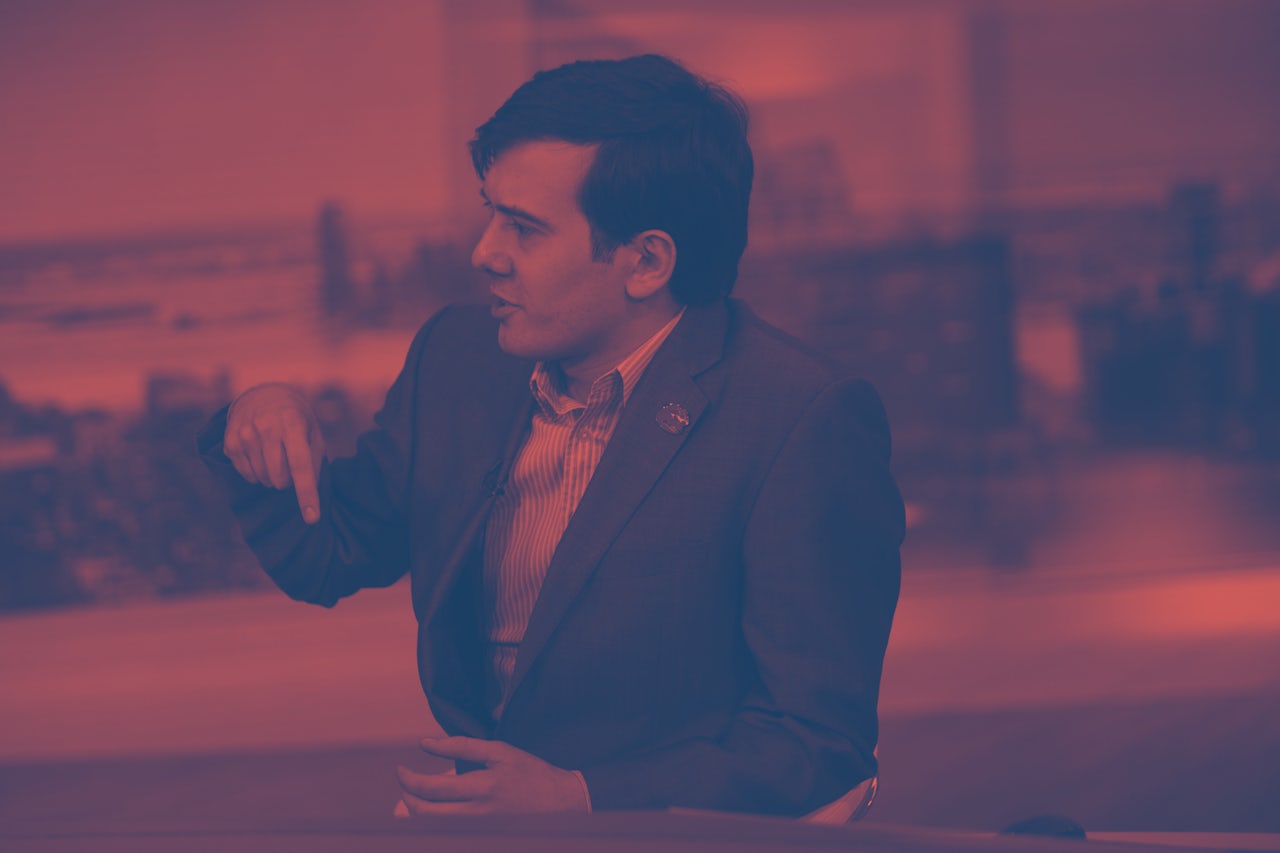After spending his Sunday morning sending unwelcome messages to Teen Vogue writer Lauren Duca, “pharma bro” Martin Shkreli’s account was suspended by Twitter. Twitter did not respond to our request for comment, but it told BuzzFeed that “The Twitter Rules prohibit targeted harassment, and we will take action on accounts violating those policies.”
Unfortunately, that statement is bogus. Twitter has become one of the best, if not the best, platform for berating strangers, and the company’s definitions for “harassment” and “abusive behavior” have never been clarified.
When the well-known internet instigator Mike Cernovich encouraged his followers to pepper the mentions of video editor (and well-known internet instigator himself) Vic Berger, Twitter declined to call it harassment. When Fusion writer Kristen V. Brown caught a wave of hateful tweets for writing about her abortion, Twitter declined to sanction her aggressors. There are many other examples of people who reported activity that many reasonable users would consider abusive — such as comparing a woman’s daughter to a photo of an ape or directing a woman to “kill yourself, slut” — only to have Twitter explain that it did not violate guidelines. In general, Twitter is still pretty fairly laissez-faire when it comes to the way people talk on its platform.
While Twitter mostly maintains this chill attitude, the company has leaped into action on a handful of occasions involving a few high-profile users. For example, Chuck Johnson, homophobic spokesperson for the alt-right, was permanently suspended after tweeting that he wanted to raise funds to “take out” civil rights activist Deray Mckesson. Then Milo Yiannopoulos, spokesperson for the alt-right, was banned after he directed a campaign of racist harassment against the actor Leslie Jones.
Yiannopoulos’s detractors cheered, but his ban did not address the bigger issue. Leigh Alexander, a games journalist and one of the targets of harassment by Gamergaters, tweeted that “i'm enjoying gloating re milo as much as anyone” but that “until twitter makes actual policy changes this single ban just makes him a martyr for BS.” Even a former employee called the site a “honeypot for assholes.”
How is this allowed @jackpic.twitter.com/Wof8MlYHTL
— Lauren Duca (@laurenduca) January 8, 2017
As Motherboard’s Derek Mead wrote, “Banning a single person, even if that person were to orchestrate some sort of mob, is not a meaningful step towards fixing a base problem with Twitter's platform.” Over at Mashable, Christina Warren wrote that “It’s great that Jack Dorsey can step-in when high profile users are bullied on the platform… But the company still feels woefully unprepared for actually dealing with the broader harassment problem.”
Back to Martin Shkreli. The former pharma bro, widely loathed for his price-gouging over an HIV drug and subsequent shamelessness, is the latest medium for this empty message.
So what exactly did Shkreli do? Turns out, not really much in the grand scheme of horrible Twitter harassment.
Lauren Duca was behind Teen Vogue’s impassioned coverage of Trump's campaign. She got a flood of attention and threats after an exchange with Fox News host Tucker Carlson over how and where people should be able to criticize Ivanka Trump.
At some point, Shkreli — a Trump supporter — noticed her. He took the harassment in a different direction, asking Duca to be his plus-one at Trump’s Jan. 20 inauguration, updating his Twitter bio to say he had a crush on her, and tweeting photos of her and her husband that had been doctored to make it look like Duca was cuddling with Shkreli. His followers joined in the fun, posting more Photoshops. Someone made a fake Twitter account in her name.
This is obviously creepy bullying. But does it violate Twitter’s policies when “kill yourself, slut” does not? Writers Lindy West and Jessica Valenti both quit the platform after “being micromanaged in real time by strangers; neo-Nazis mine my personal life for vulnerabilities to exploit; and men enjoy unfettered, direct access to my brain so they can inform me, for the thousandth time, that they would gladly rape me if I weren’t so fat” and receiving a rape threat directed at her 5-year-old daughter, respectively. Where was Twitter then?
Yiannoupols, Johnson, Azealia Banks, and George Zimmerman have been deemed worthy of the ban. Leslie Jones and Lauren Duca were high profile enough to receive protection, but West and Valenti were not.
Unverified, everyday women who use Twitter consistently report incidents of doxxing and hate speech. In 2014, more than 800 incident reports were observed over three weeks by Women, Action, and the Media for their report on Twitter harassment. WAM’s findings prompted a Globe and Mail writer to describe Twitter as “broken” for women.
What Twitter needs now is not more splashy bans. It needs consistency. Ban Shkreli and his mob of mean-spirited followers. But also ban the lesser-known harassers who shout insults and threats.
Twitter declined to elaborate when asked about how the banning of Shkreli would impact users on the rest of the platform.
